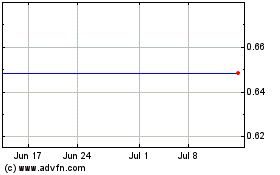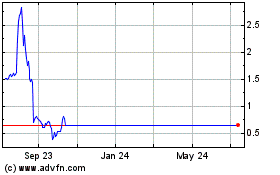Court Upholds 'Pay For Delay' Drug Pacts; Urges More Review
April 29 2010 - 6:06PM
Dow Jones News
A federal appeals court on Thursday upheld the legality of
pharmaceutical patent settlements that can delay the introduction
of generic rivals, but suggested the issue needed further court
review.
In an opinion Thursday, the U.S. Second Circuit Court of Appeals
affirmed the legality of a so-called reverse exclusionary payment
settlement in which Bayer AG (BAYRY) paid Barr Pharmaceuticals Inc.
(BRL), a potential generic competitor, to drop its patent challenge
to Cipro, an antibiotic drug.
However, the three-judge panel, in a somewhat unusual move,
invited drug purchasers who challenged the settlement to ask that
the case be reviewed by the full circuit, citing the "exceptional
importance" of the antitrust implications of so called "pay for
delay" settlements of patent suits.
Barr challenged Bayer's Cipro patent in October 1991 and entered
into a settlement with Bayer in January 1997, about two weeks
before the case was set to go to trial.
A group of direct and indirect drug purchasers, including CVS
Caremark Corp. (CVS) and Rite Aid Corp. (RAD), challenged the
settlement beginning in 2000.
Steve D. Shadowen, a lawyer for the drug purchasers, said he's
"cautiously optimistic" these types of settlements will be declared
illegal.
"I'm very optimistic the court will get it right in the end,"
Shadowen said.
The U.S. Federal Trade Commission has been an opponent to these
types of settlements and the U.S. Department of Justice, in a
policy reversal, said in a court filing last year that similar drug
patent settlements should presumed unlawful.
"This is further evidence that courts are rethinking their
approach to pay-for-delay settlements, which cost American
consumers $3.5 billion a year in higher prescription drug prices,"
said Jon Leibowitz, chairman of the Federal Trade Commission.
"Hopefully, the courts will put an end to these deals. In the
meantime, the FTC will continue to explain, in court and in the
halls of Congress, why these sweetheart deals for drug companies
are such a bad deal for American consumers and taxpayers."
Lawyers for Bayer and Barr didn't immediately return phone calls
seeking comment Thursday.
-By Chad Bray, Dow Jones Newswires; 212-227-2017;
chad.bray@dowjones.com
Rite Aid (NYSE:RAD)
Historical Stock Chart
From Aug 2024 to Sep 2024

Rite Aid (NYSE:RAD)
Historical Stock Chart
From Sep 2023 to Sep 2024
